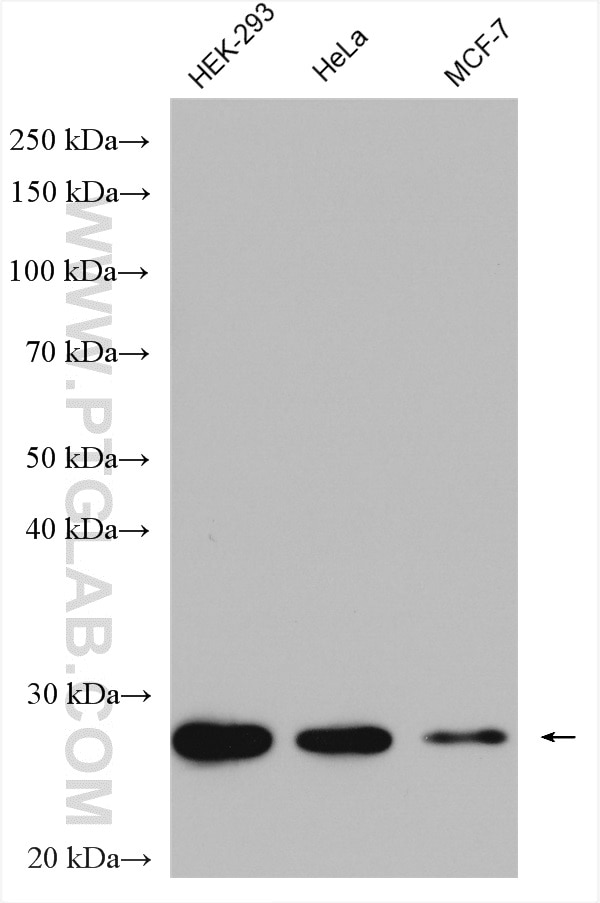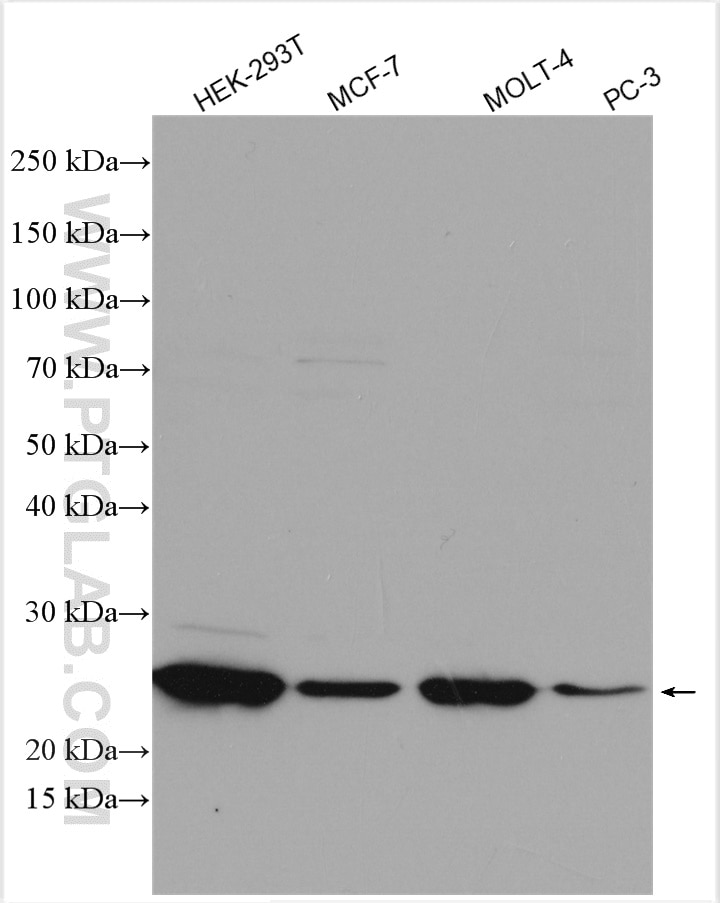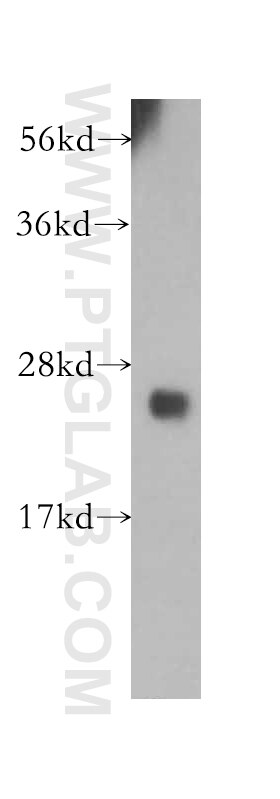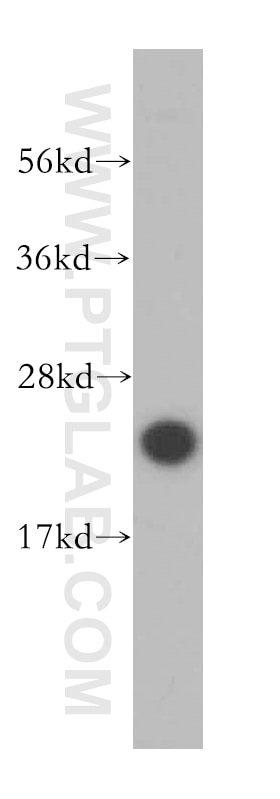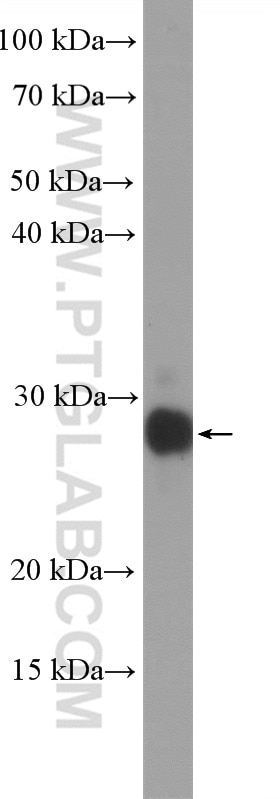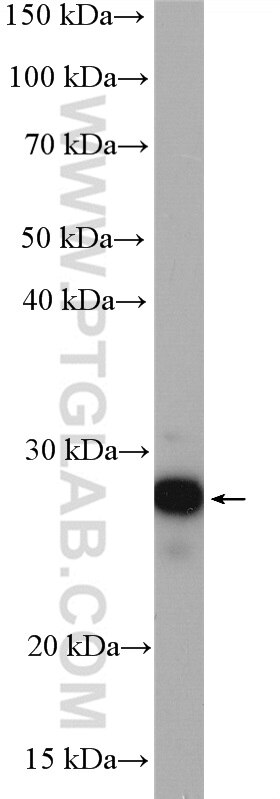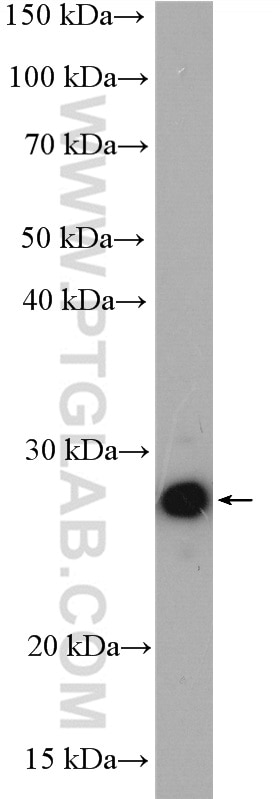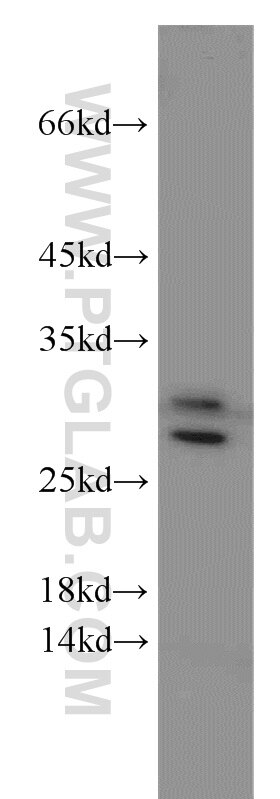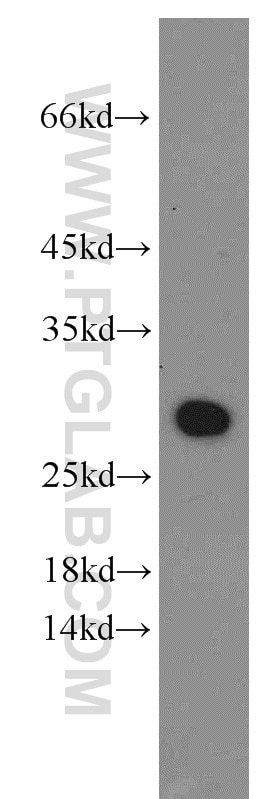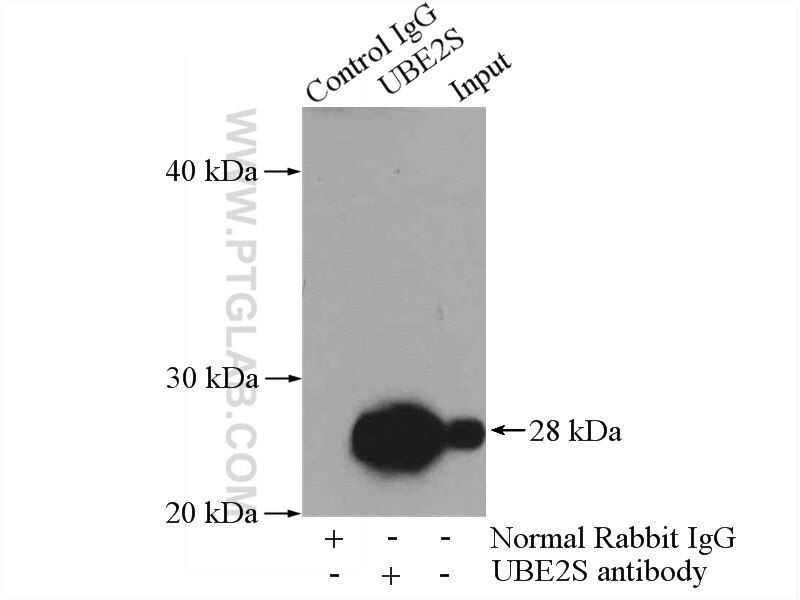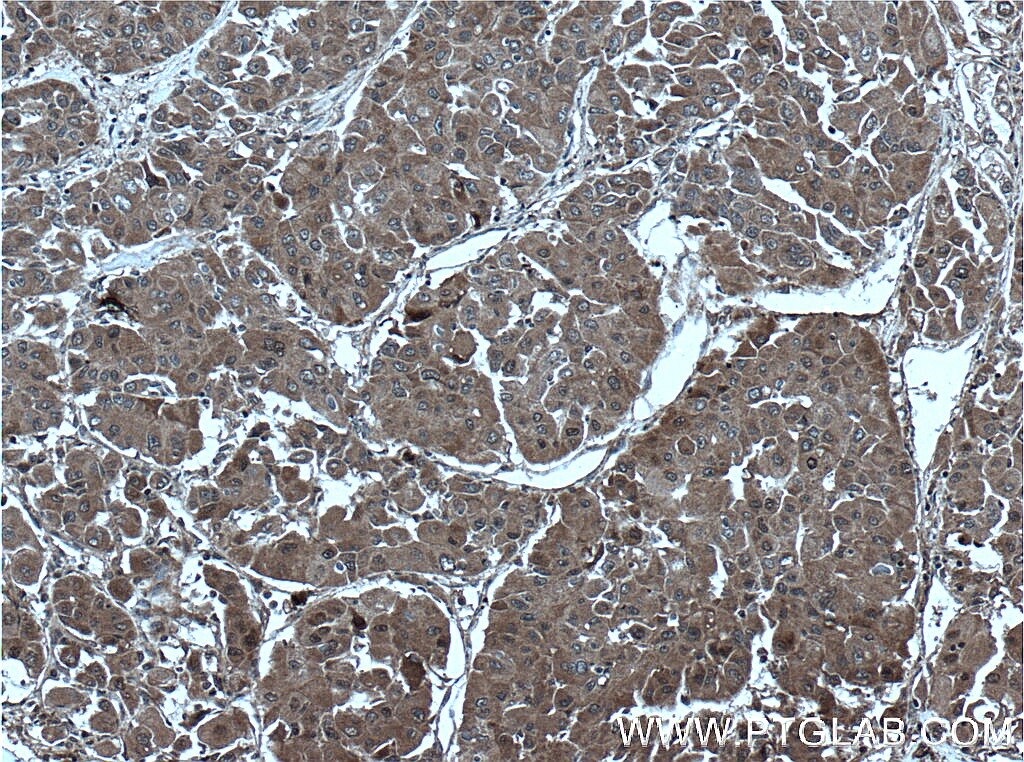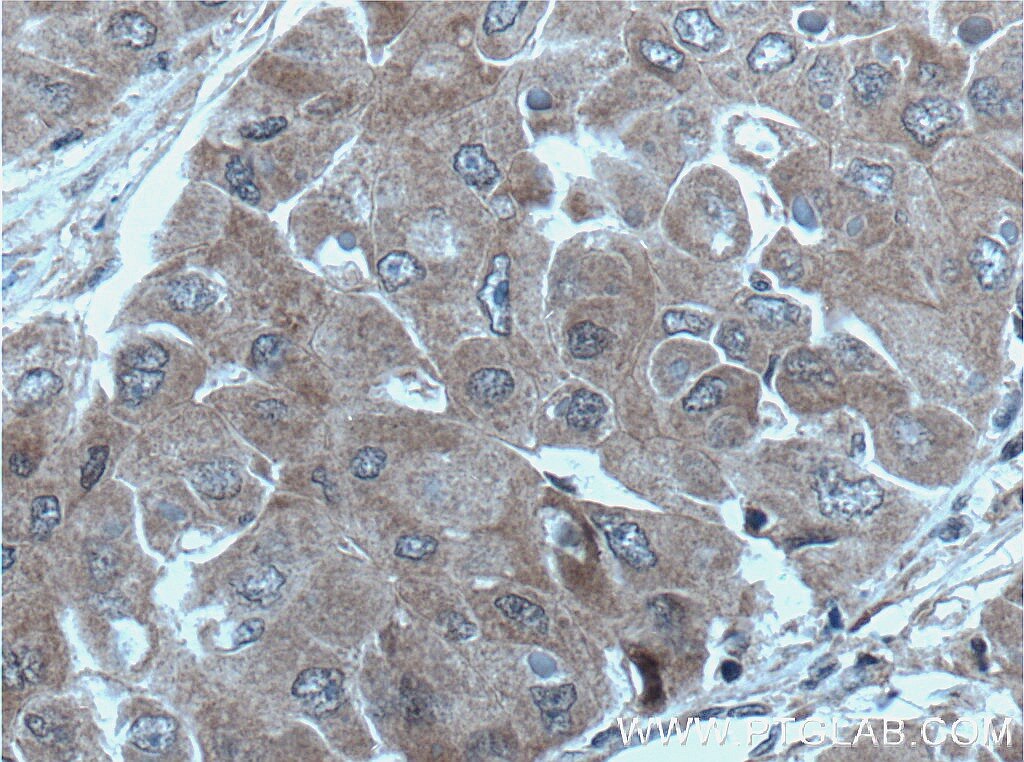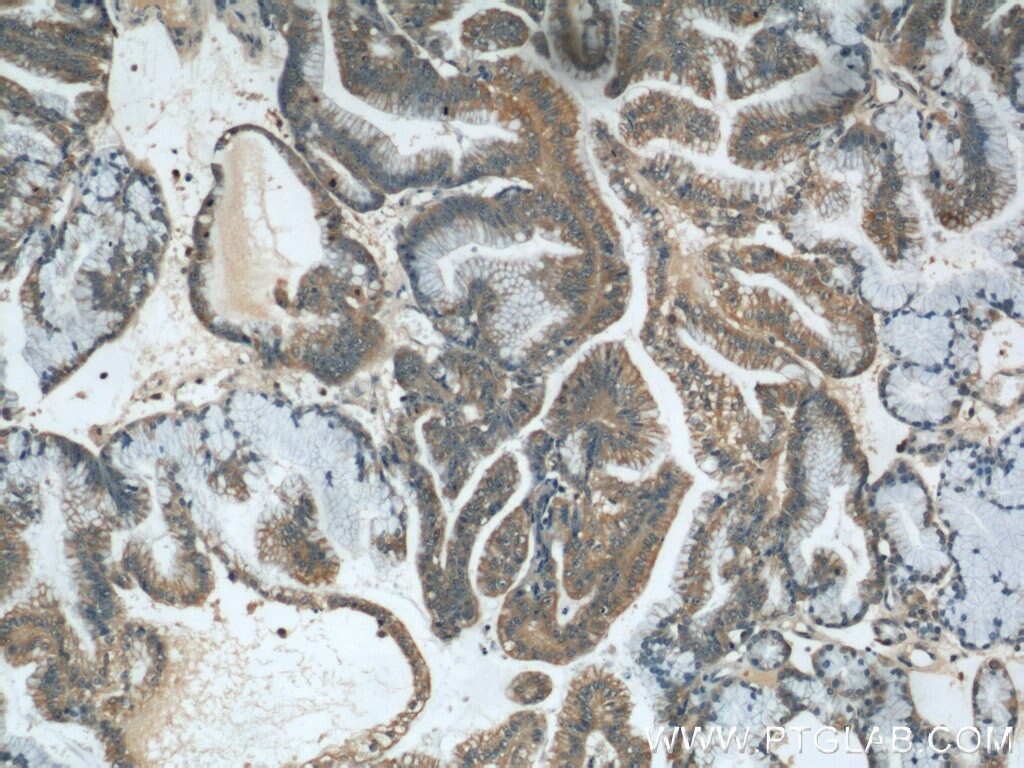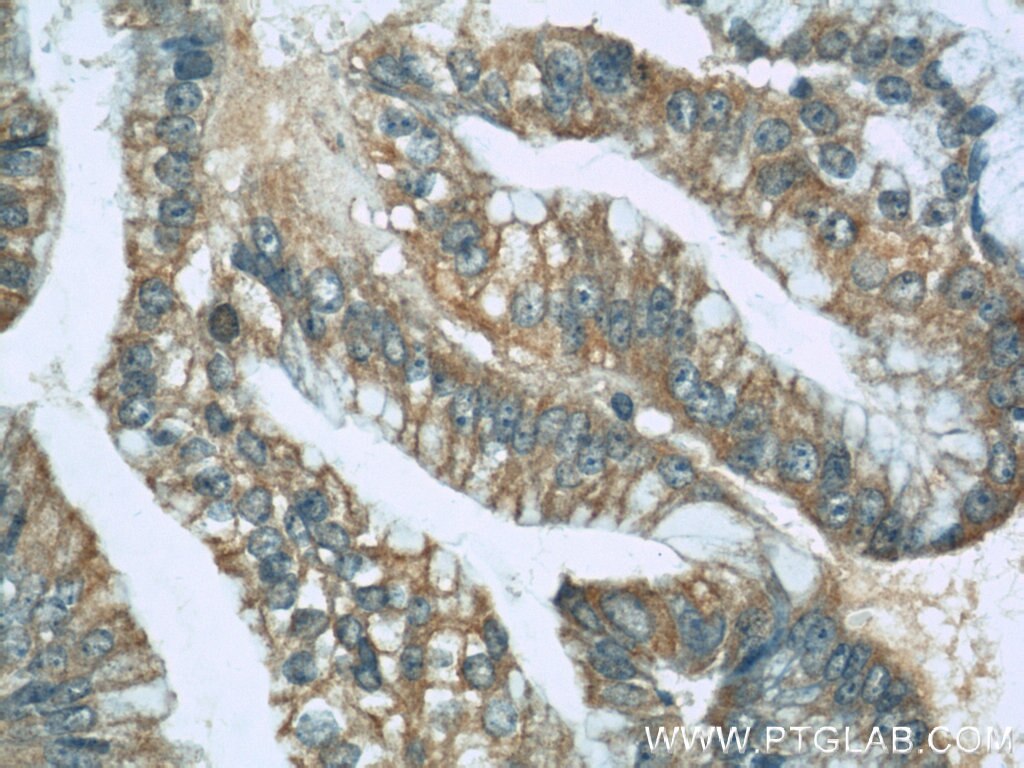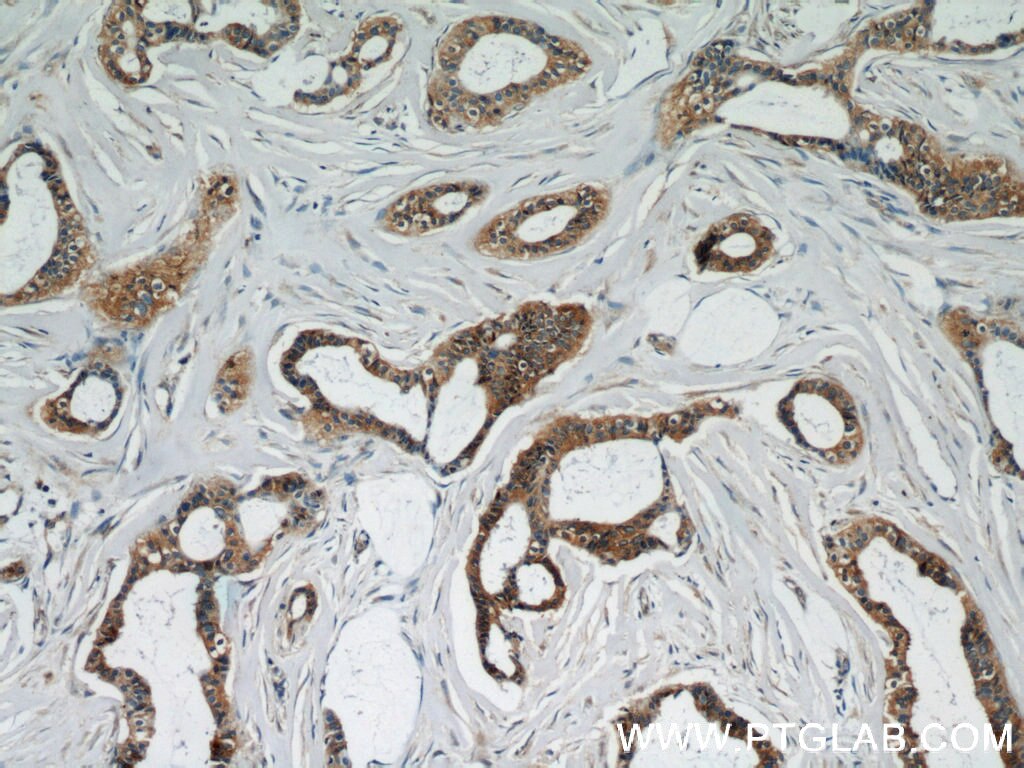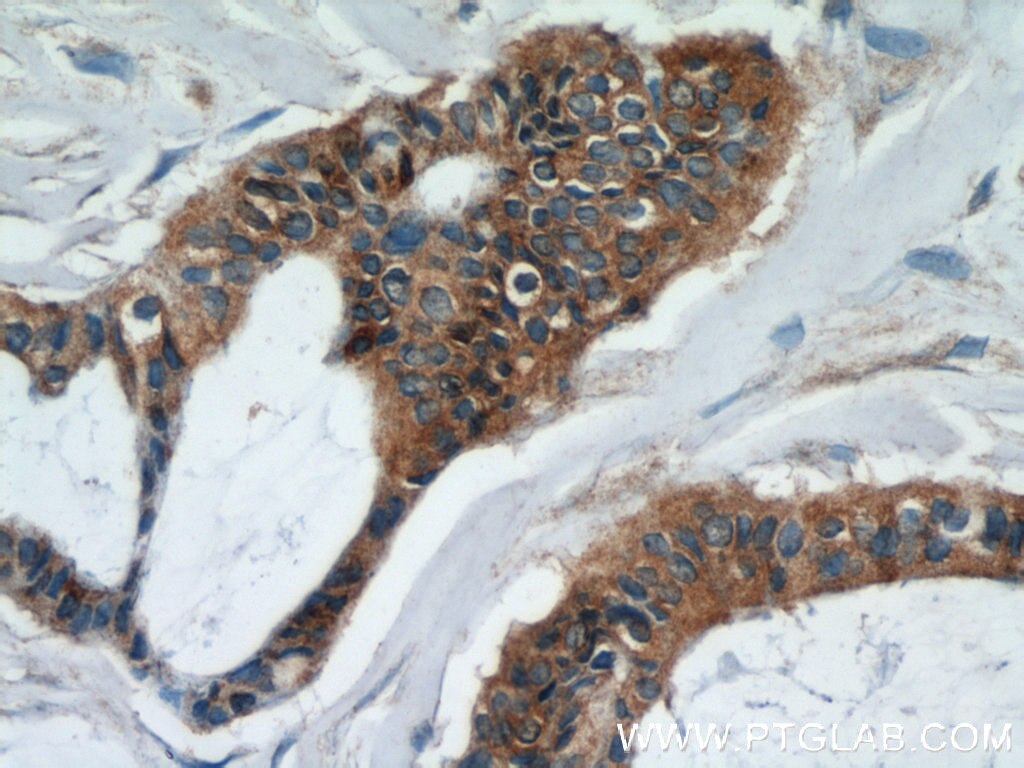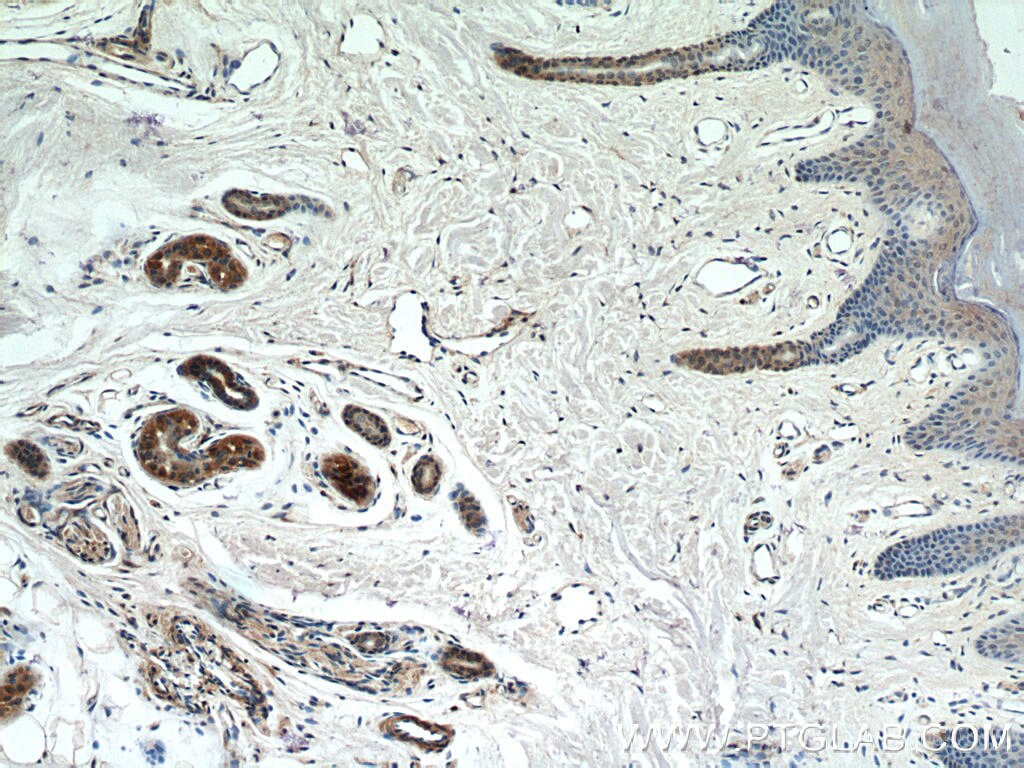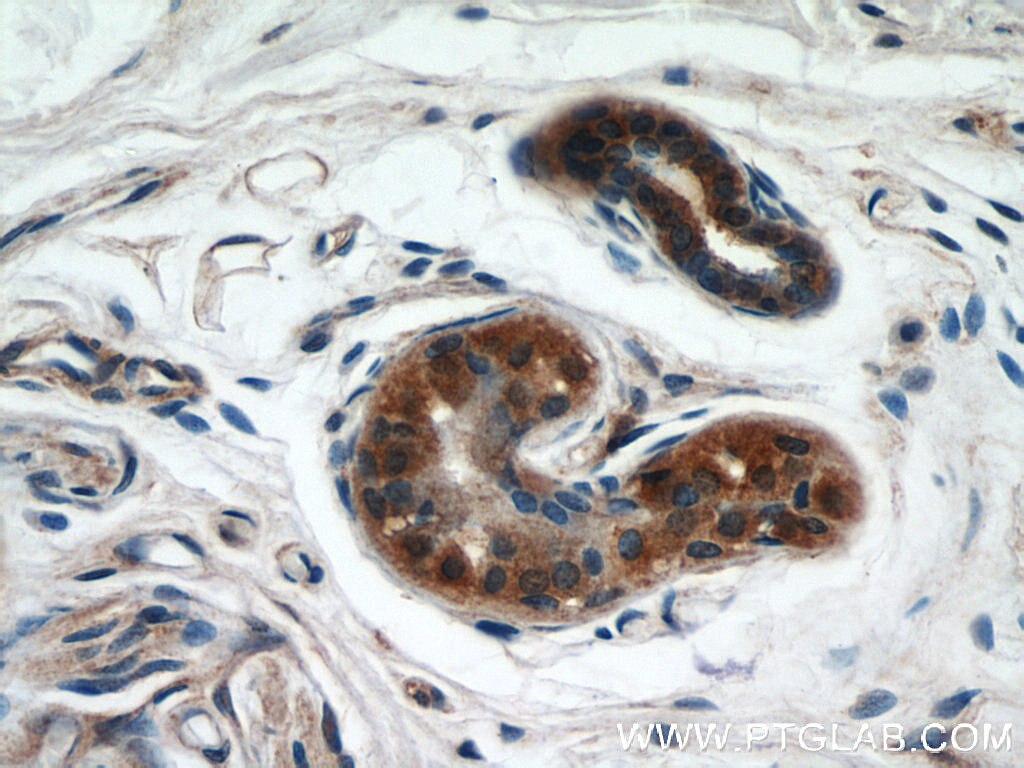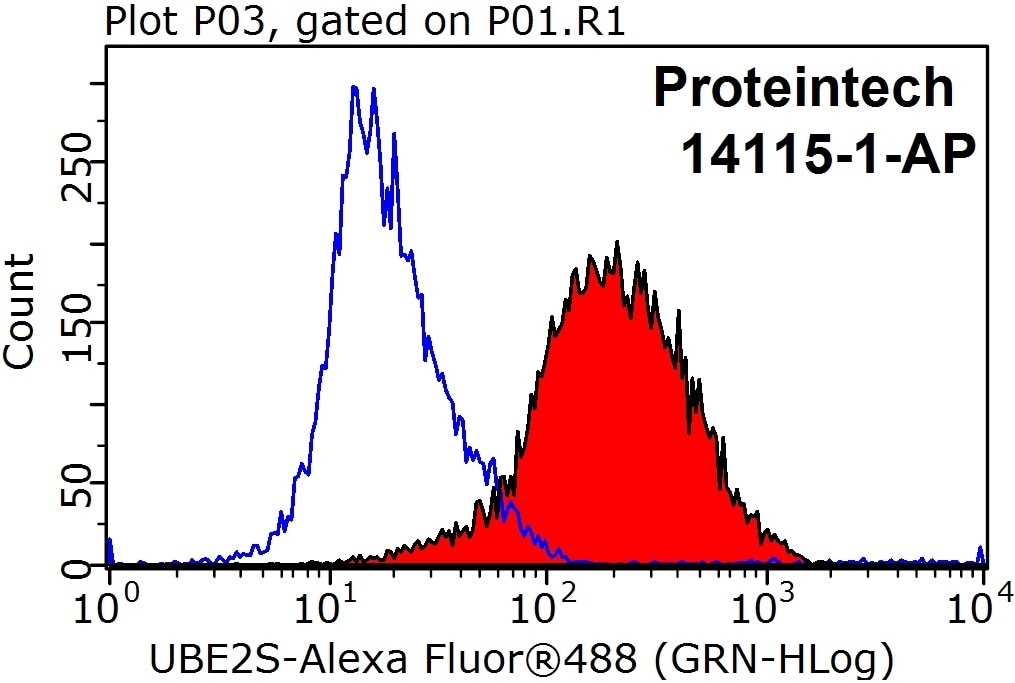- Featured Product
- KD/KO Validated
UBE2S Polyklonaler Antikörper
UBE2S Polyklonal Antikörper für FC, IHC, IP, WB, ELISA
Wirt / Isotyp
Kaninchen / IgG
Getestete Reaktivität
human, Maus, Ratte
Anwendung
WB, IP, IHC, IF, FC, CoIP, ELISA
Konjugation
Unkonjugiert
Kat-Nr. : 14115-1-AP
Synonyme
Galerie der Validierungsdaten
Geprüfte Anwendungen
| Erfolgreiche Detektion in WB | MCF-7-Zellen, A2780-Zellen, HEK-293T-Zellen, HEK-293-Zellen, HeLa-Zellen, humanes Lebergewebe, Mauslebergewebe, MDA-MB-453s-Zellen, MOLT-4-Zellen, PC-3-Zellen |
| Erfolgreiche IP | A2780-Zellen |
| Erfolgreiche Detektion in IHC | humanes Leberkarzinomgewebe, humanes Hautgewebe, humanes Mammakarzinomgewebe, humanes Ovarialkarzinomgewebe Hinweis: Antigendemaskierung mit TE-Puffer pH 9,0 empfohlen. (*) Wahlweise kann die Antigendemaskierung auch mit Citratpuffer pH 6,0 erfolgen. |
| Erfolgreiche Detektion in FC | Jurkat-Zellen |
Empfohlene Verdünnung
| Anwendung | Verdünnung |
|---|---|
| Western Blot (WB) | WB : 1:1000-1:6000 |
| Immunpräzipitation (IP) | IP : 0.5-4.0 ug for 1.0-3.0 mg of total protein lysate |
| Immunhistochemie (IHC) | IHC : 1:50-1:500 |
| Durchflusszytometrie (FC) | FC : 0.50 ug per 10^6 cells in a 100 µl suspension |
| It is recommended that this reagent should be titrated in each testing system to obtain optimal results. | |
| Sample-dependent, check data in validation data gallery | |
Veröffentlichte Anwendungen
| KD/KO | See 6 publications below |
| WB | See 8 publications below |
| IHC | See 5 publications below |
| IF | See 1 publications below |
| CoIP | See 3 publications below |
Produktinformation
14115-1-AP bindet in WB, IP, IHC, IF, FC, CoIP, ELISA UBE2S und zeigt Reaktivität mit human, Maus, Ratten
| Getestete Reaktivität | human, Maus, Ratte |
| In Publikationen genannte Reaktivität | human, Maus |
| Wirt / Isotyp | Kaninchen / IgG |
| Klonalität | Polyklonal |
| Typ | Antikörper |
| Immunogen | UBE2S fusion protein Ag5264 |
| Vollständiger Name | ubiquitin-conjugating enzyme E2S |
| Berechnetes Molekulargewicht | 222 aa, 24 kDa |
| Beobachtetes Molekulargewicht | 28 kDa |
| GenBank-Zugangsnummer | BC066948 |
| Gene symbol | UBE2S |
| Gene ID (NCBI) | 27338 |
| Konjugation | Unkonjugiert |
| Form | Liquid |
| Reinigungsmethode | Antigen-Affinitätsreinigung |
| Lagerungspuffer | PBS mit 0.02% Natriumazid und 50% Glycerin pH 7.3. |
| Lagerungsbedingungen | Bei -20°C lagern. Nach dem Versand ein Jahr lang stabil Aliquotieren ist bei -20oC Lagerung nicht notwendig. 20ul Größen enthalten 0,1% BSA. |
Hintergrundinformationen
UBE2S(Ubiquitin-conjugating enzyme E2 S) is also named as E2EPF and belongs to the ubiquitin-conjugating enzyme family. It acts as an essential factor of the anaphase promoting complex/cyclosome (APC/C) and a cell cycle-regulated ubiquitin ligase that controls progression through mitosis. Overexpression of UBE2S can increase tumor cell proliferation, invasion, and metastasis through the VHL-HIF pathway (PMID:16819549).
Protokolle
| Produktspezifische Protokolle | |
|---|---|
| WB protocol for UBE2S antibody 14115-1-AP | Protokoll herunterladen |
| IHC protocol for UBE2S antibody 14115-1-AP | Protokoll herunterladen |
| IP protocol for UBE2S antibody 14115-1-AP | Protokoll herunterladen |
| Standard-Protokolle | |
|---|---|
| Klicken Sie hier, um unsere Standardprotokolle anzuzeigen |
Publikationen
| Species | Application | Title |
|---|---|---|
Protein Cell BMP4 preserves the developmental potential of mESCs through Ube2s- and Chmp4b-mediated chromosomal stability safeguarding.
| ||
Int J Biol Sci UBE2S as a novel ubiquitinated regulator of p16 and β-catenin to promote bone metastasis of prostate cancer.
| ||
Int J Biol Sci The Role of CHK1 Varies with the Status of Oestrogen-receptor and Progesterone-receptor in the Targeted Therapy for Breast Cancer. | ||
J Ovarian Res UBE2S promotes the progression and Olaparib resistance of ovarian cancer through Wnt/β-catenin signaling pathway. | ||
Biochem Biophys Res Commun UBE2S associated with OSCC proliferation by promotion of P21 degradation via the ubiquitin-proteasome system.
| ||
Cell Rep Ubiquitin-Conjugating Enzyme 2S Enhances Viral Replication by Inhibiting Type I IFN Production through Recruiting USP15 to Deubiquitinate TBK1.
|
